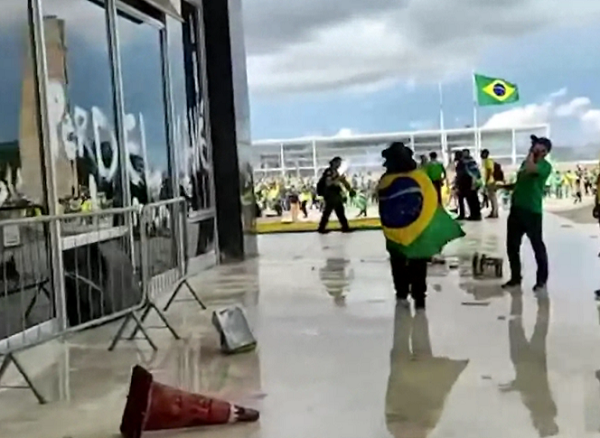The government is going to send to the National Congress a project that establishes penalties of up to 40 years for those who attempt against the life of authorities. The text is part of the “Democracy Package”, signed by President Luiz Inácio Lula da Silva (PT) in a ceremony at the Planalto Palace last week.
This Content Is Only For Subscribers
To unlock this content, subscribe to INTERLIRA Reports.
20 to 40 Years
In cases where the objective is to change the democratic constitutional order, the text provides that the accused may be sentenced to 20 to 40 years for crimes against the lives of the following authorities: president, vice president, ministers of the Federal Supreme Court, senate president, mayor, and Attorney General of the Republic.
Public Servant and Businessmen
The proposal also provides that, if the crime is committed by a public official, there is automatic loss of office, function or elective mandate. The text also prohibits individuals involved in anti-democratic acts from contracting with the Government and from obtaining subsidies, grants, benefits or tax incentives. It also includes the possibility of suspending partner and administrator rights, while subsidies, grants or benefits or tax incentives last, in cases where the convict participates in a business company by reasoned court decision.
Response
The project, which comes along with other measures that toughen penalties for those that commit crimes against democracy, gained momentum after the attack on the Three Powers Plaza, in Brasília, on 8 January, when extremists that supported former president Jair Bolsonaro (PL) invaded and vandalized the headquarters of the three powers, in Brasília. In addition to the protests in front of the military barracks all over Brazil demanding a coup d’état to prevent Lula from taking office.
Support From the Brazilian Red Berets
Information obtained through interrogations with those involved in the protests and in the attacks gave strength for the approval of such projects that try to dissuade political groups or individuals from attempting any action against the democratic institutions. Alan Diego dos Santos Rodrigues, who was arrested and convicted of trying to explode a bomb installed in a fuel truck near Brasília airport, told the Civil Police of the Federal District that an extremist group formed by retired military personnel gathered information about the security of authorities and about the installations of the Supreme Federal Court (STF) and the National Congress.
The extremists — called “Red Berets” or “paratroopers” — were armed and they charged for services, he said. They offered to manufacture and install the explosive in the tanker truck in December, but Alan Diego said he decided to do it himself, with the help of George Washington de Oliveira Sousa.
According to a Brazilian Intelligence Agency (Abin) report, the group had no centralized structure, and it was made up of reserve soldiers from the Army’s Parachute Infantry Brigades, who share a similar political-ideological position: propensity for violence and disregard for the rule of law.
Speech to Law Enforcement Officers
On Friday (21), President Lula (PT) said to an audience of police officers that they are in a state career, thus they cannot be party members and must work for everyone who holds the position of President of the Republic. The speech shows the climate of distrust that still remains between the current Federal Government and the security forces all over the country.
During Bolsonaro’s mandate, the former president received a lot of support from the security forces, which showed in various occasions to be aligned with his ideas, particularly the armed forces, which had many of its members working directly in the ranks of the government. When he lost the 2022 elections, members of this sector manifested themselves against the new president, and got involved in situations that created suspicions, like the performance of the military police during the 8 January attacks.Until to this day, the government attempts to improve relations with the security forces, by appointing individuals to specific positions, providing more resources, in addition to legal mechanisms, like the one mentioned above.
Source:




